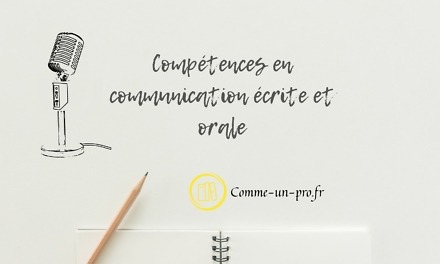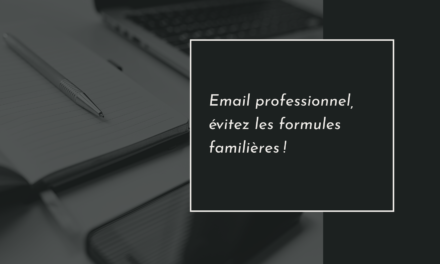Courtesy for professional email: "pending"
The art of correspondence can be learned. It is true that there are great similarities between a courier and a professional mail. However, some differences remain. The probable risk of forwarding the errors that you usually make in your mails at the level of your mails is important. When we use the polite phrase "Pending ...", the choice of the phrase that should follow is not for all that free. Discover, in this article, the appropriate polite formula.
The peculiarity of the polite phrase "Pending ..."
"Pending your agreement ...", "Pending your response ...", "Pending a favorable response from you ...". These are all polite expressions that can be used in a letter as well as in a professional email.
However, the polite phrase “Pending…” must be followed by a subject. This is explained by the fact that it is an apposition. Any other way of proceeding is wrong.
When you write, for example, "Pending a favorable response to my request, receive Mr. Director, the expression of my deep gratitude", strictly speaking, there is no subject. If we had to look for one, we would probably find your recipient, which all in all seems illogical, given that it is you who are waiting and not your correspondent.
“Pending…”: Which phrase to complete?
Rather, the correct wording is as follows: "Pending a favorable response to my request, please accept, Mr. Director, the expression of my deep gratitude" or "Pending receipt of your agreement, please accept the assurance of my highest consideration ”.
In addition, it will also be necessary to ensure that there is a certain harmony between the appeal formula and the final formula. So, when you say for example, "Mr. Director" in appeal, the final formula that befits this: "Pending a favorable response to my request, please accept, Mr. Director, the expression of my most devoted feelings ”.
Either way, a letter or mail deserves attention. An important business email meets the same requirements. You will gain a lot from proofreading in order to correct any spelling or grammar mistakes. It is for your credibility and that of your business.
Although it is possible to use polite expressions similar to couriers. You can also use shorter formulas such as "Best regards", "Bien cordially", "Sincerely" or "Cordially yours". In any case, you will have to avoid abbreviations like "Cdt" for cordially or "BAV" for yours.
Something else to avoid, emoticons or smileys. If these practices are frequent in usual messaging, the fact remains that they are inappropriate for professional emails.




